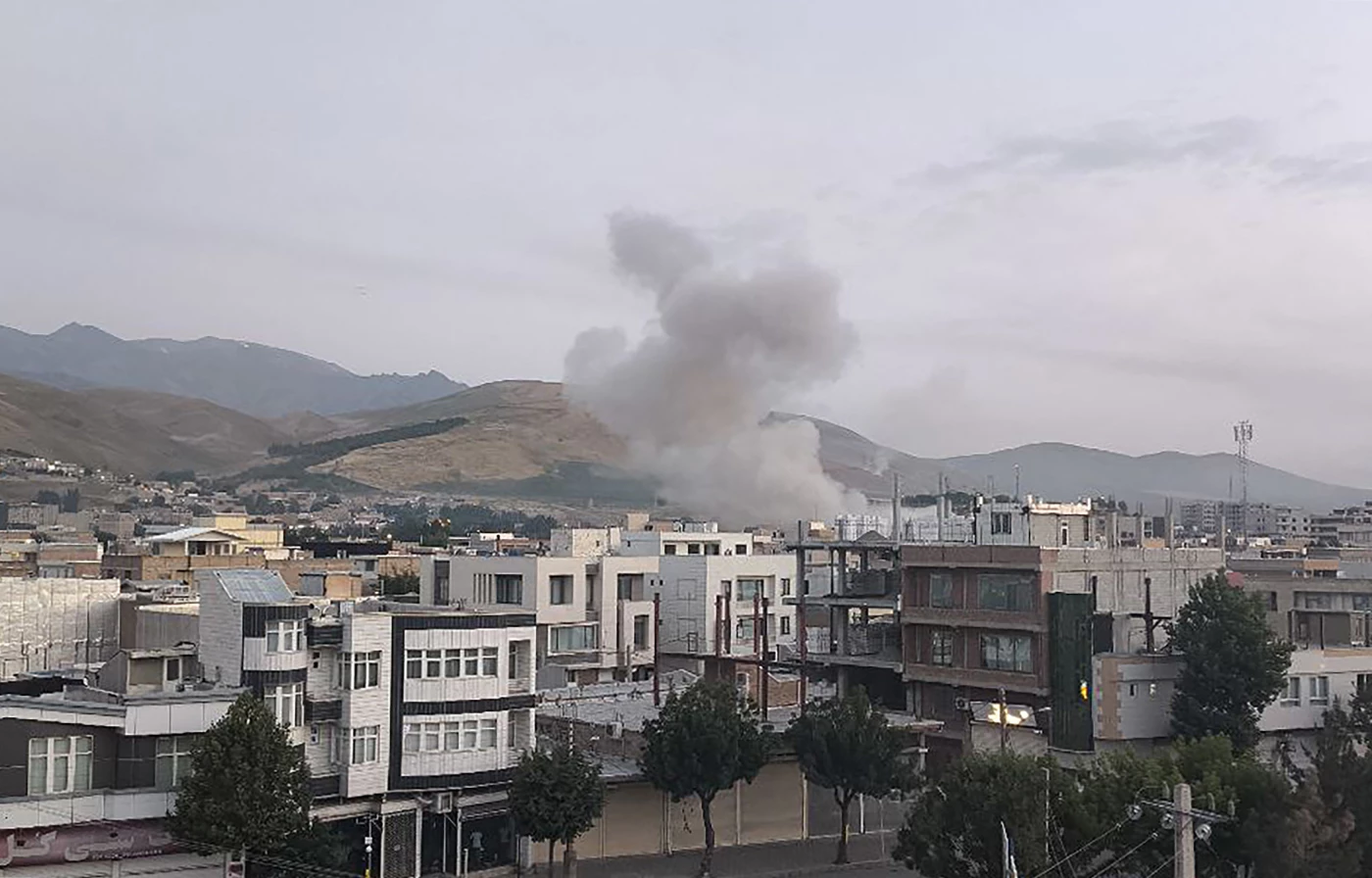ERBIL, Kurdistan Region of Iraq – A major Israeli aerial attack on sites across Iran on Friday morning has sparked reactions from the international community, with Iraq and other regional neighbors condemning the strikes as the US seeks to distance itself from Tel Aviv's action.
Israel announced on early Friday that it carried out a “preemptive strike” against Iran after multiple explosions were reported in the Iranian capital, Tehran. The attacks targeted several parts of Iran, including Tehran and the Natanz nuclear research facility in Isfahan, killing at least six nuclear scientists and numerous Iranian officials.
Iraq on Friday said that Baghdad condemns "in the strongest terms" the Israeli attack on Iran, calling for the United Nations Security Council to take "decisive and concrete measures to deter this aggression."
The Israeli attack “constitutes a flagrant violation of the fundamental principles of international law and the Charter of the United Nations and poses a threat to international peace and security, especially as it occurred during the period of US-Iranian negotiations," the Iraqi statement said.
“The international community must not remain a spectator to this blatant violation of international law. The use of force to re-establish facts threatens to undermine the foundations of modern international relations.”
Turkey’s foreign ministry urged Israel to halt its attacks following the deadly strikes, saying in a statement that "Israel must put an immediate end to its aggressive actions that could lead to further conflicts."
The United Arab Emirates also condemned “in the strongest terms” the attack, saying that Abu Dhabi is concerned about the “repercussions on regional security and stability.”
Both the United Kingdom and France urged restraint from all sides in the conflict, with British Prime Minister Keir Starmer saying that "now is the time for restraint, calm, and a return to diplomacy… Escalation serves no one in the region,” while French Foreign Minister Jean-Noel Barrot said, “We call on all sides to exercise restraint and avoid any escalation that could undermine regional stability.”
The US was keen to distance itself from the attack, portraying it as a unilateral Israeli action that should not invite retaliation against US targets in the Middle East.
US Secretary of State Marco Rubio in a statement said, “We are not involved in strikes against Iran” and that “Iran should not target US interests or personnel.”
The large-scale bombardment came just days ahead of a sixth round of nuclear talks between Washington and Tehran that were pegged for Sunday, with Alaeddin Boroujerdi, a member of the Iranian Parliament, saying that the upcoming negotiations have been canceled and that he does not think that “any other round of talks will take place” in light of the attack.
International Atomic Energy Agency (IAEA) chief Rafael Mariano Grossi called the development “deeply concerning,” saying that nuclear facilities “must never be attacked.”
The IAEA on Friday confirmed that “no increase in radiation levels has been observed" at the Natanz nuclear facility in Iran after it was targeted in the strikes, assuaging concerns relating to a possible containment breach of nuclear materials.
Iranian Supreme Leader Ayatollah Ali Khamenei on Friday vowed a “severe punishment” for Israel following the attack, saying in a statement, "With this crime, the Zionist regime prepared a bitter and painful fate for itself and it will definitely receive it."



 Facebook
Facebook
 LinkedIn
LinkedIn
 Telegram
Telegram
 X
X


